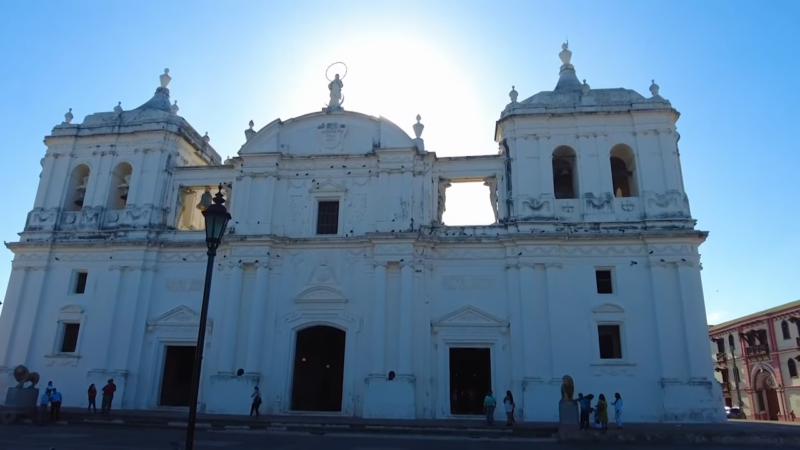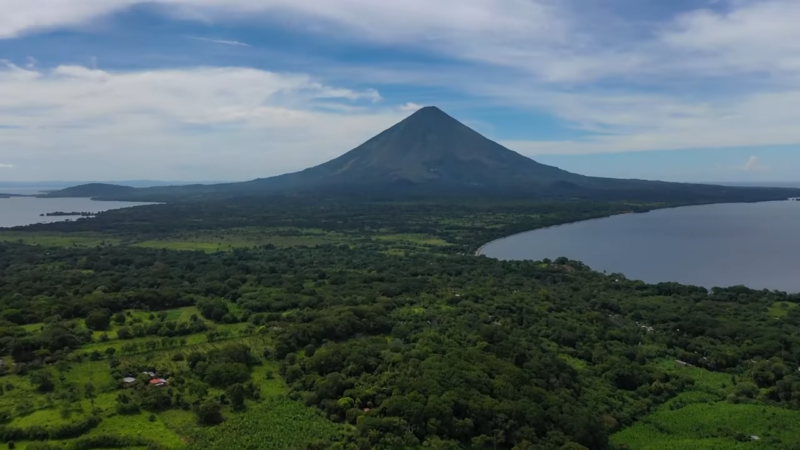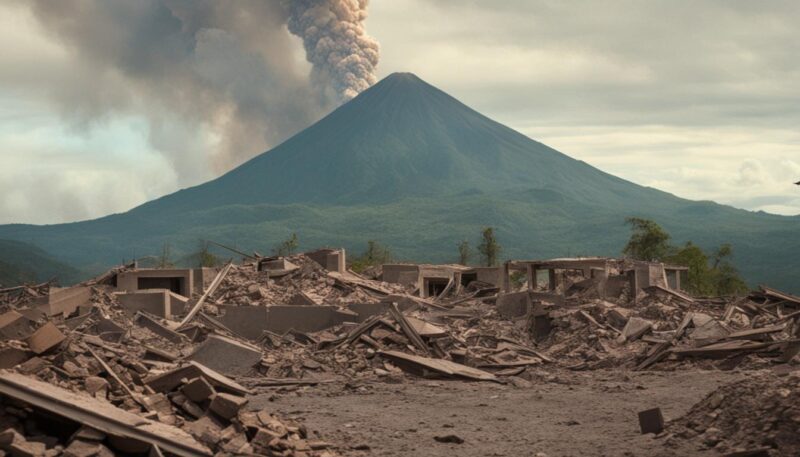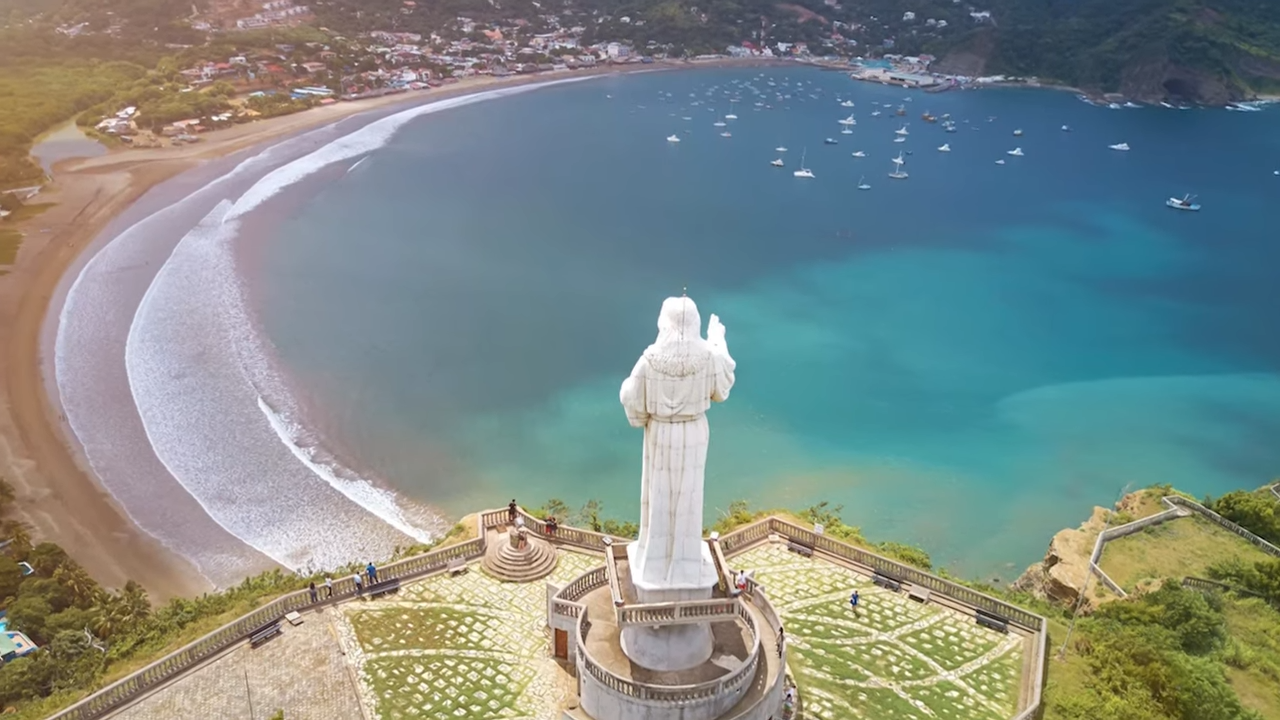Imagine being a U.S. citizen, eagerly planning your dream vacation to Nicaragua, only to be met with a startling reality: the U.S. Department of State has reissued a travel advisory, urging Americans to reconsider their trip. The reason? A complex web of political turmoil, security risks, and healthcare challenges that have raised serious concerns for the safety and well-being of travelers.
As you read through the advisory, a sense of unease settles in. You can’t help but wonder: what exactly is happening in this once-vibrant Central American nation, and how can you navigate the treacherous landscape to ensure your own protection? The answers, it seems, lie in the details of this critical travel warning.
Key Takeaways
- The U.S. Department of State has reissued a Level 3 travel advisory for Nicaragua, urging U.S. citizens to reconsider travel to the country.
- The advisory cites the risk of arbitrary enforcement of laws, the possibility of wrongful detention, and limited healthcare availability as primary concerns.
- U.S. citizens, including dual Nicaraguan-U.S. citizens, have been subject to revocation of Nicaraguan citizenship, reentry bans, expulsion, and other actions.
- Travelers are advised to consider arrangements for a quick departure, ensure their U.S. passport is valid and available, and exercise caution when walking or driving at night.
- The advisory also warns of increased caution due to crime threats in Nicaragua, including violent crimes such as sexual assault and armed robbery.
Country Summary

The government of Nicaragua, led by President Daniel Ortega and Vice President Rosario Murillo, continues to target and repress individuals and organizations perceived as political opponents. U.S. citizens, including dual Nicaraguan-U.S. citizens, have faced a range of actions from the Nicaraguan government, including revocation of citizenship, reentry bans, expulsion, and other punitive measures.
Government Targeting of Opponents
The Nicaraguan government and its affiliated groups have been known to arbitrarily prevent individuals from entering or departing the country, search personal devices for anti-government content, and systematically target pro-democracy advocates and their family members. This crackdown on civil liberties has raised significant concerns about the state of human rights and political freedoms in Nicaragua.
Arbitrary Enforcement of Laws

The Nicaraguan government has also been reported to confiscate privately-owned land, residences, financial assets, and personal property without due process, demonstrating a concerning pattern of arbitrary enforcement of laws. This abuse of power further undermines the rule of law and the ability of U.S. citizens to safely reside or travel in the country.
Risk of Wrongful Detention
U.S. citizens arrested in Nicaragua may face prolonged detention without charges or fair trial guarantees, as the judicial process lacks transparency, especially in cases with perceived political motivations. This heightens the risk of wrongful detention and raises concerns about the protection of civil liberties for both Nicaraguan and American citizens.
Limited Healthcare Availability
The limited availability of healthcare, particularly outside of major cities in Nicaragua, further complicates the ability of the U.S. Embassy to assist American citizens in emergencies. This lack of access to quality medical services poses an additional challenge for U.S. travelers and residents in the country.
Safety and Security Risks
Travelers to Nicaragua should exercise increased caution due to the prevalent crime threats, including violent crimes such as sexual assault and armed robbery. Petty street crime is common, and the police presence is limited outside of major urban areas. The Nicaraguan government has also been known to violently suppress demonstrations and strikes that may occur throughout the country.
Crime Threats
Violent crimes, including sexual assault and armed robbery, pose significant risks to visitors in Nicaragua. Petty street crime, such as pickpocketing and bag snatching, is also a common concern, especially in crowded areas and tourist hotspots. Travelers should take precautions, such as avoiding walking alone at night, keeping valuables out of sight, and being vigilant when using public transportation.
Demonstrations and Civil Unrest
The Nicaraguan government has a history of violently suppressing public demonstrations and civil unrest. Travelers should avoid any large gatherings or protests, as they can quickly turn volatile and lead to clashes between security forces and demonstrators. It’s essential to monitor local news and social media for updates on the security situation and heed any warnings or instructions from local authorities.
Arbitrary Detentions and Harassment

U.S. citizens have reported being subjected to arbitrary detentions and harassment by Nicaraguan authorities and armed civilians, often for perceived political reasons. Visitors should avoid any commentary or criticism of the Nicaraguan government or political situation to minimize the risk of such incidents. If confronted by authorities, it’s crucial to remain calm and comply with their instructions.
Entry and Exit Considerations
Travelers to Nicaragua must ensure their U.S. passport is valid and readily available for a quick departure from the country, if needed. The travel advisory recommends considering arrangements to depart Nicaragua quickly and maintaining adequate supplies of food, cash, potable water, and fuel in case they need to shelter in place.
Passport Requirements
Before embarking on a trip to Nicaragua, U.S. citizens should verify that their passport is valid for at least six months beyond the planned travel dates. This is a critical requirement for entry into the country, as Nicaraguan authorities may deny entry to those with expired or nearly expired passports.
Departure Preparedness
Travelers are advised to enroll in the Smart Traveler Enrollment Program (STEP) to receive important emergency information and updates from the U.S. Department of State. This can help ensure they are informed of any evolving security situations or requirements for exiting Nicaragua.
Additionally, maintaining a supply of essential items, such as food, cash, water, and fuel, can provide a safeguard in case travelers need to shelter in place or depart the country on short notice due to unforeseen circumstances.
Nicaragua Travel Advisory
The U.S. Department of State has issued a Level 3 travel advisory for Nicaragua, recommending that U.S. citizens reconsider travel to the country. The advisory cites the risk of arbitrary enforcement of laws, the possibility of wrongful detention, and limited healthcare availability as key concerns. Additionally, U.S. citizens are advised to exercise increased caution in Nicaragua due to crime threats.
The U.S. travel advisory for Nicaragua underscores the need for travelers to be aware of the ongoing political and security challenges in the country. The Nicaraguan government’s targeting of political opponents, the arbitrary enforcement of laws, and the limited access to quality healthcare present significant risks for U.S. citizens visiting the region.
Travelers planning to visit Nicaragua should carefully review the U.S. Department of State’s Nicaragua travel advisory and take appropriate precautions to ensure their safety and well-being. Enrolling in the Smart Traveler Enrollment Program (STEP) and staying informed of the latest developments can help U.S. citizens remain prepared and responsive to changing conditions in the country.
Health and Natural Disasters
While the capital city of Managua offers relatively robust medical services, healthcare options outside of the city can be limited, presenting potential challenges for U.S. citizens in need of care, especially victims of crime in Nicaragua. Additionally, the country is prone to a variety of natural disasters, including earthquakes, hurricanes, floods, and volcanic eruptions, which can further complicate access to medical resources.
Medical Services
Nicaragua’s healthcare system, while adequate in Managua, may struggle to meet the needs of travelers in more remote areas. U.S. citizens should be prepared to encounter limited availability of specialized treatments, diagnostic equipment, and emergency medical facilities, particularly in rural regions. Seeking timely, quality care can be especially crucial for victims of accidents, assaults, or other incidents requiring prompt medical attention.
Natural Disaster Preparedness
Given Nicaragua’s susceptibility to natural disasters, such as earthquakes, hurricanes, floods, and volcanic eruptions, travelers are advised to closely monitor local media reports and follow the guidance of Nicaraguan authorities in the event of an emergency. It is also recommended that U.S. citizens enroll in the Smart Traveler Enrollment Program (STEP) to receive important updates and information on potential natural disaster threats and emergency procedures.

Additional Travel Advisories
While the U.S. Department of State’s travel advisory for Nicaragua focuses on the risks posed by the government’s actions and the country’s security situation, travelers should also be aware of other potential challenges they may face. These include ongoing border and maritime disputes, beach safety concerns, and risks within the tourism industry.
Border Disputes
Nicaragua has longstanding border and maritime disputes with several of its neighboring countries, including Colombia, Costa Rica, Honduras, and El Salvador. These disputes have led to increased tensions and the presence of security forces in some border areas, which can pose additional risks for travelers. Visitors to Nicaragua should stay informed about the current status of these border issues and exercise caution when traveling near disputed regions.
Beach Safety
Travelers visiting Nicaraguan beaches should be cautious, as there have been instances of U.S. citizens drowning in the past. Lifeguards and proper rescue equipment are not always available at beaches, which can increase the risk of accidents. Visitors should research beach conditions, heed any warnings or advisories, and exercise prudence when swimming or engaging in water-based activities.
Tourism Industry Risks
The tourism industry in Nicaragua is unevenly regulated, and safety inspections for equipment and facilities are not always conducted. This can pose risks to travelers, as the quality and maintenance of tourist-related infrastructure, such as hotels, transportation, and activity providers, may not meet expected standards. Visitors should research their accommodations and tour providers thoroughly and be cautious when engaging in activities or using services that may not adhere to rigorous safety protocols.
Conclusion
In conclusion, the U.S. Department of State has reissued the travel advisory for Nicaragua, maintaining a Level 3 recommendation to reconsider travel to the country. Travelers should be aware of the risks posed by the Nicaraguan government’s targeting of political opponents, the arbitrary enforcement of laws, the possibility of wrongful detention, and the limited availability of healthcare. Additionally, travelers should exercise caution due to crime threats, demonstrations and civil unrest, and natural disaster risks.
Also read: Spain travel advisory
The Department of State recommends that U.S. citizens carefully consider their travel plans, take appropriate precautions, and enroll in the Smart Traveler Enrollment Program to stay informed and prepared. The Nicaragua travel advisory conclusion emphasizes the importance of understanding the Nicaragua travel risks and taking necessary Nicaragua travel precautions to ensure a safe and secure trip. The Department of State’s Nicaragua travel recommendations provide valuable guidance for anyone considering visiting the country.
Overall, the reissued travel advisory for Nicaragua highlights the complex and challenging environment that U.S. citizens may face if they decide to travel to the country. By staying informed, taking appropriate measures, and exercising caution, travelers can minimize the risks and potentially have a safer and more enjoyable experience in Nicaragua.
FAQ
What is the current U.S. Department of State travel advisory for Nicaragua?
The U.S. Department of State has reissued the travel advisory for Nicaragua, advising U.S. citizens to reconsider travel to the country due to the risk of arbitrary enforcement of laws, wrongful detention, and limited healthcare availability.
What are the key concerns regarding the Nicaraguan government’s actions?
The Nicaraguan government under President Daniel Ortega and Vice President Rosario Murillo continues to target and repress individuals and organizations seen as opponents. U.S. citizens, including dual Nicaraguan-U.S. citizens, have been subject to revocation of Nicaraguan citizenship, reentry bans, expulsion, and other actions.
What are the safety and security risks for travelers in Nicaragua?
Travelers should exercise increased caution in Nicaragua due to crime threats, including violent crimes such as sexual assault and armed robbery. Demonstrations and strikes may occur throughout the country, and the Nicaraguan government has violently suppressed them in the past. U.S. citizens have also reported being subjected to arbitrary detentions and harassment by Nicaraguan authorities and armed civilians, often for perceived political reasons.

